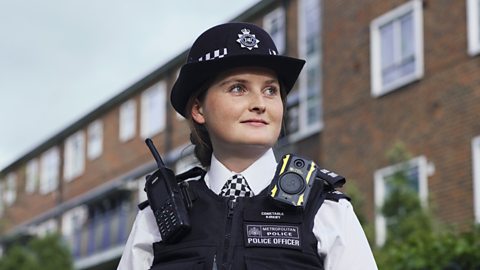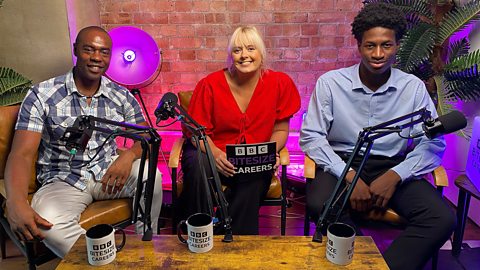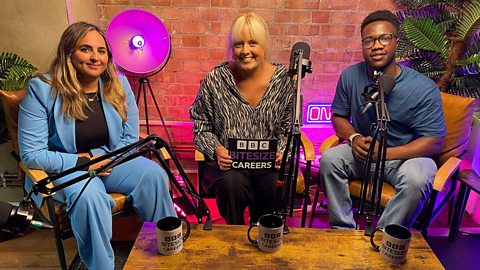Advice for applicants

Whether you’re applying for a new job, or studying towards your dream career, it can be hard to know what employers really want. So we went right ahead and asked them.
Here's some key advice from some of the UK's biggest employers about how you can stand out from the crowd and avoid the most common pitfalls along the way.

British Airways
Mel Kose - Senior emerging talent manager

What do you look for in a great candidate?
At British Airways, we are keen to hear from candidates with bags of enthusiasm. This is one of the many qualities we look for as we know there are other skills we can teach you if you’re successful. Working at a global airline, no day is the same so we need people who will turn up every day eager to learn with a positive can-do attitude.
What makes a CV or cover letter stand out?
Keep your CV short and to the point. We receive a high number of applications every day so it’s vital that you can grab our attention immediately. Make sure your most recent experiences are positioned at the top and clearly demonstrate what you brought to the role – don’t just list your responsibilities. Also, try to keep your CV under two pages – anything longer won’t stand out. With your cover letter, this should be a ‘shop window’ as to who you are and what you can offer the business you are applying to.
What’s the best piece of interview advice?
The best advice for anyone with an interview is to make sure you factor in time to prepare. This should involve researching the company — not just the organisation's history — but things such as any recent news articles about the business and what has been posted on the official social media pages. Make sure you think about what things you really want the company to know about you and think of some questions you can ask at the end. This will make you feel so much more confident.
What are some common mistakes candidates make?
The most common mistake that candidates make is not being organised. It shouldn’t be underestimated how vital it is to research the company before your interview.
NHS
Abi Changer - Careers information and quality lead at NHS England

What do you look for in a great candidate?
People come into the NHS from all different backgrounds, but the main thing that we are looking for is a candidate who is able to show real commitment to quality of care and working together for patients. Other values that we look for are respect, dignity, compassion and demonstrating that everyone counts. Being able to bring these values to the table will give you a good chance of being able to secure a job with us.
We are looking for people who are passionate about being part of a team that can make a real difference for patients and people who use our services.
What makes a CV or cover letter stand out?
When you apply for a job in the NHS, you probably won’t need to send a CV or covering letter in, but you do need to complete an online application form including a section called supporting information. There are several things to think about when you are completing this.
Firstly, make sure that your spelling, punctuation and grammar are correct. Try to get someone to look through it before submitting your application or there are online tools that can help make sure that what you have written is correct and free from mistakes. Try to make the most of all the experience that you have and explain why that experience makes you the ideal candidate for the job. Wherever possible, match this to the requirements in the person specification and job description.
What are the most valuable skills a young person can develop?
Communication skills are very important as most roles with us involve talking to patients or members of the public. Often you need to get across complex or difficult information to people in a simple and easy to understand way, as well as being able to think about the feelings of the person you're communicating with.
We don’t expect people to know everything when they join us but a willingness to learn goes a long way to help fit into our teams, to develop your skills and be able to build your career.
Working here can very busy and hectic so being able to prioritise your work and make sure that the most important tasks are carried out first is vital, so think about times when you have had to prioritise things previously and how that helped you achieve what you needed to achieve.
What’s the best piece of interview advice?
Do your homework on the organisation and job. You may be asked questions about what the job involves, so be prepared to answer these. Prepare for the interview and think about some examples of where you have met the person specification and the job description. Try to structure your answers using the STAR technique (Situation, Task, Action, Result) and think about how you are going to show that you understand and live our values.
Make sure that you are on time for your interview and plan your journey in advance to avoid any potential late running as well as choosing something smart and professional to wear.
At the interview, making eye contact with the panel when answering their questions can go a long way. Try to keep smiling throughout. Don’t be afraid to ask the interviewer(s) to repeat a question if you haven’t quite heard or understood it. Also have a couple of questions prepared to ask the panel at the end of your interview.
The Met Police
Steve Sharpe - Senior resourcing lead on officer recruitment

What do you look for in a great candidate?
We want people to join us who share our values of integrity, courage, accountability, respect and empathy. We welcome candidates from all backgrounds who are quick learners and keen to make an impact, starting from the first day they join.
What makes a CV or cover letter stand out?
Be proud of your achievements and bring them to life on your CV. Highlight your key skills and how they make you relevant to the role that you’re applying for. Make it personal, organised and engaging.
What are the most valuable skills a young person can develop?
Listening effectively so that you understand the needs of others is vital – at work and in your personal life. Good listeners are often also empathetic, curious and patient, which are all traits we value.
What’s the best piece of interview advice?
Be yourself and ask lots of questions. It is a two-way selection process – make sure that you feel that the company is a good match for you.
What are some common mistakes candidates make?
Make sure you’re answering the actual question that the interviewers ask you. We notice that sometimes people give pre-prepared answers that aren’t relevant to the question. So while preparing is important, try not to ‘over-prepare’ and be sure to listen carefully to what is asked.
Alton Towers
Simon Day - People director at Alton Towers Resort

What do you look for in a great candidate?
For us, a great candidate is someone who demonstrates a clear passion for the resort and the role being applied for. They should align with our company values to give their best every day, own their work and see it through until it’s done brilliantly. It’s important to show a willingness to grow and adapt. At Alton Towers, we particularly value individuals who are authentic, service-orientated and bring a positive energy. We bring fun and optimism to our work – because happiness helps us be at our best.
What makes a CV or cover letter stand out?
A standout CV or cover letter is tailored to the role and highlights relevant skills and experiences with solid examples. It shows not only what the candidate has done but how they’ve made an impact. Personal touches, such as explaining why they’re excited about working at Alton Towers and how their values align with ours, make a lasting impression. Don’t fill the page with buzzwords. Be specific on examples of what you have achieved, in work and in your personal interests. Clarity is key.
What are the most valuable skills a young person can develop?
Some of the most important skills are communication, adaptability and teamwork. You have to be able to express yourself clearly and work well with others, especially in dynamic situations. Working with us will also put your problem-solving skills to the test. If you can show that you think critically and can come up with innovative solutions, that’ll help you stand out. Try to learn from your setbacks. It’s important to be resilient and keep a positive attitude when things get tough.
What’s the best piece of interview advice?
Be curious and as prepared as you can be. Research the company before you attend. Make sure you understand the role and reflect on how your experiences show that you meet the job requirements. During the interview, listen carefully and answer the questions with specific examples. Try to be authentic. Don’t be afraid to showcase your enthusiasm and show that you really want the opportunity. Finally, come prepared with thoughtful questions to demonstrate genuine interest in the role and company
Quick career tips
The employers we spoke to were brimming with advice on how you can be an unmissable candidate. We've broken it down into some bitesize tips to take away.
Be sure to check out our CV and cover letter toolkits to make sure your application is up to scratch.
Application top tips
- Make the most of the experience you have and match it to the job description
- Talk about relevant skills and use solid examples
- If there is a named contact in the job advert, you could try reaching out to them to ask about the role
- Your cover letter is a shop window for you to explain who you are and what you can bring to the job
- Clarity is key. Be specific about what you've achieved
- Make it personal and explain why you're excited to work where you're applying.
- Keep your CV short and to the point
- Make sure your spelling and punctuation are correct
Interview top tips
- Do your homework on the organisation and job
- Keep an eye on the organisation's social media and any recent news stories
- Show that you have the skills referenced in the job description
- Read up on the values of the organisation and think about how you can express them
- Structure your answers using the STAR method (Situation, Task, Action, Result)
- If the interview is in person, plan your journey and turn up on time
- If the interview is remote, test your audio and still turn up on time!
- Wear something professional
- Try to maintain eye contact and smile
- Listen carefully and try to be authentic
- Be yourself and ask lots of questions
Top skills employers want
- Communication skills
- A willingness to learn and grow
- Knowing what to prioritise
- Being able to work in a team
- Bringing a positive can-do energy to work
- Problem-solving skills
- Being a good listener who's empathetic, curious and patient.
Clear communication and strong teamwork help keep our operation running smoothly and customers in the air.
Mel Kose - British Airways
More from Bitesize Careers
Career toolkit: How do I write a great CV?
Everything you need to know to write an engaging CV and land your dream job.

Career toolkit: How do I write a great cover letter?
Everything you need to know to write a memorable cover letter that sells your skills.

Quiz: What is your perfect job? quizQuiz: What is your perfect job?
Try this fun quiz to find out about the types of jobs you might enjoy and different careers you could consider.

The Bitesize Careers Podcast: Help! How can I set achievable goals? videoThe Bitesize Careers Podcast: Help! How can I set achievable goals?
Setting and sticking to goals can be hard. Katie Thistleton and guests explore top tips and tricks to help you.

The Bitesize Careers Podcast: Help! What do I do next? videoThe Bitesize Careers Podcast: Help! What do I do next?
Wondering what to do after school? Katie Thistleton and guests help you figure out your next move.

‘What tree would you be and why?’: Tackling weird interview questions
Top tips on how to handle curveball interview questions.
